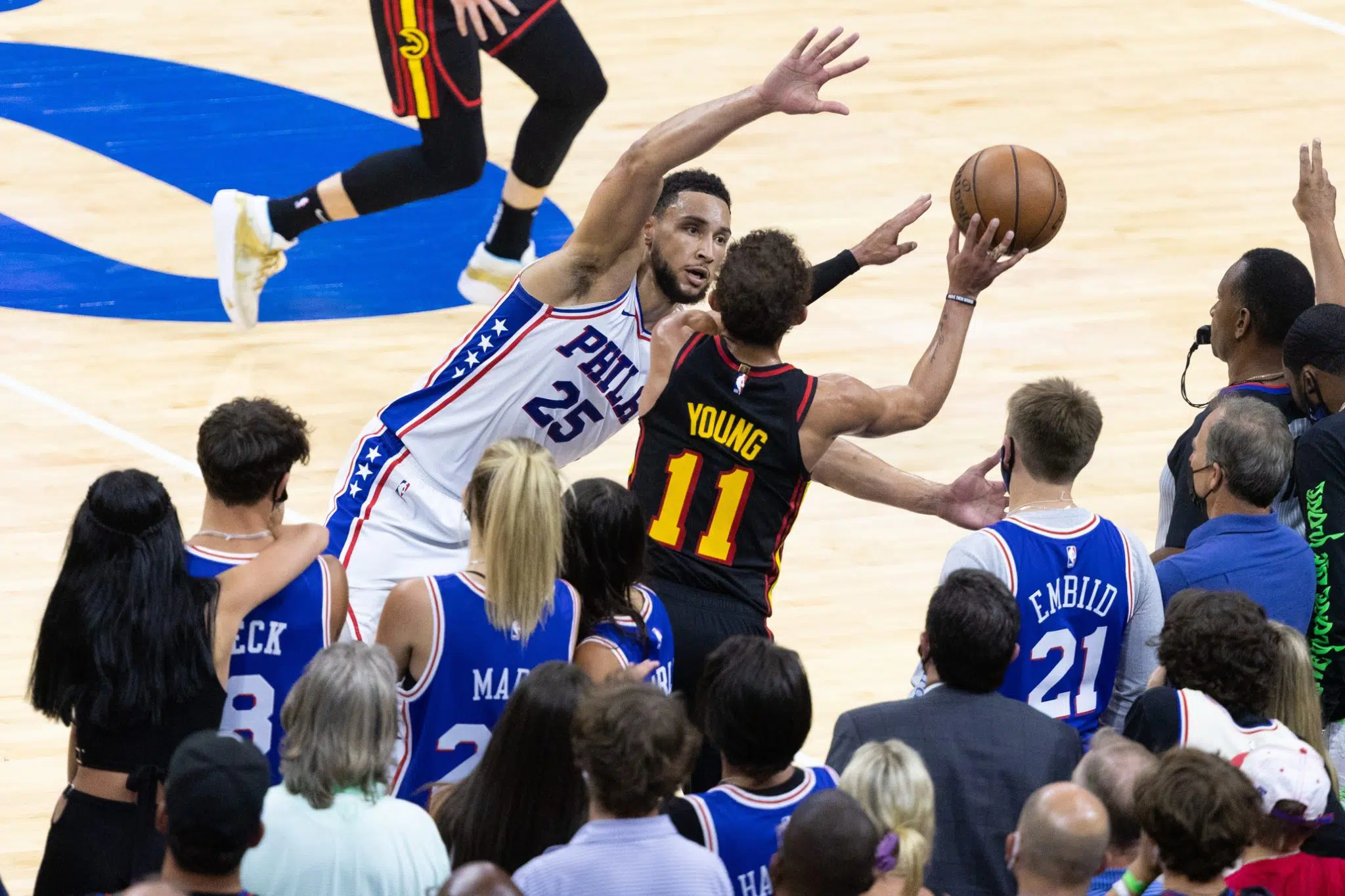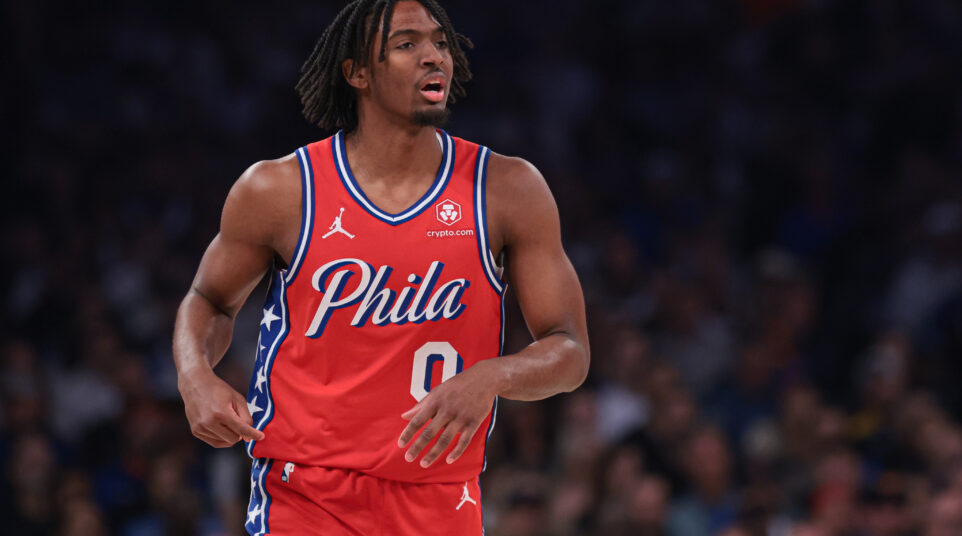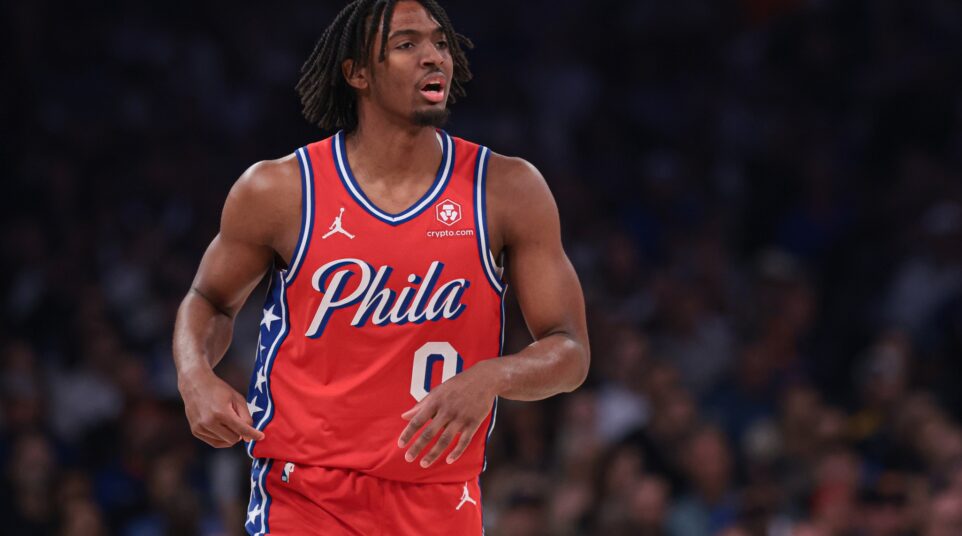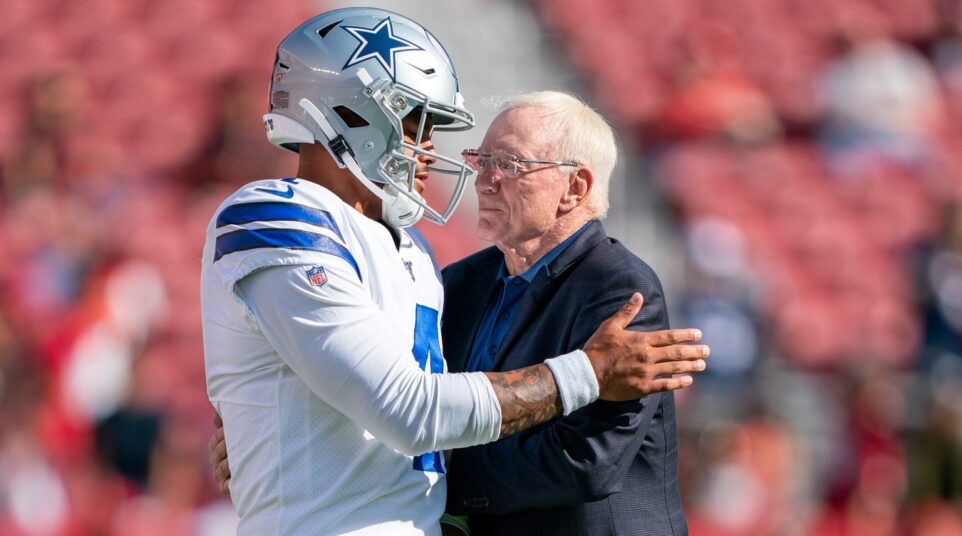
A Final Word on Ben Simmons
“I was born in Australia,” Ben Simmons remarked in One and Done, a 2016 feature that chronicled the basketball star’s path from Australia to the NBA by way of a forgettable season at LSU. “I didn’t grow up watching the NCAA tournament. That was never a big deal to me. It was high school, then the NBA. It was never college.”
On Thursday, just ahead of the NBA’s trade deadline, the 76ers shipped Simmons, Seth Curry, Andre Drummond, and two first-round picks to the Brooklyn Nets for James Harden and Paul Millsap. Thus ended the tumultuous tenure of Ben Simmons the 76er, savior of the franchise, and one of the crown jewels of The Process. It felt like a good time to take one last stab at making sense of his six-year run in Philadelphia, and there are few better options to begin such an exercise than re-watching a documentary capturing the moments before Simmons landed in the City of Brotherly Love.
When One and Done was released, it was easy to sympathize with Simmons and his family. Due to an arbitrary rule that still governs the draft eligibility process, Ben needed to wait one year after his high school graduation before he could pursue his NBA dreams. A player who possessed all of the physical attributes a prospect would need to play professionally and would have no trouble finding a team to draft and develop him instead was required to spend a season honing his game in college or an overseas pro league.
Even today, the argument the Simmons camp made about the draft process remains compelling. In a country that entrusts 18-year-olds with the right to vote and requires men to register with the Selective Service at that time, it seems ridiculous, paternalizing, and discriminatory to restrict the career options of anyone that age.
But here’s the thing about life that we all learn eventually: it can be unfair, and brutally so at times. There are worse fates than attending an institution of higher learning on a full scholarship, even if it’s not the path you might choose if you had your druthers.
Besides, college offers young men and women valuable opportunities that might not be available after they leave campus. Opportunities for self-discovery. Opportunities to experience freedom and balance its weight against the burden of responsibility without a parent alongside to ensure the seesaw is properly calibrated. Opportunities to meet new people, learn new information, immerse oneself in different cultures and perspectives. Opportunities to learn from mistakes and mature before entering the unforgiving maw of the real world.
Opportunities which, One and Done makes clear, Ben Simmons had zero interest seizing. Instead, he wallowed in his misfortune and bided his time on the Bayou until he could declare for the draft. When there was a choice between taking the undemanding path or opting for the more difficult, and possibly more rewarding, road, Simmons veered toward Easy Street. He didn’t want to go to class, so he stopped going. In the guts of the game, when it was winning time, he didn’t want to take the last shot. So he passed. He didn’t want to lead, so he deferred. Sounds familiar.
Did LSU exploit Ben Simmons? Of course. He never bothered to take advantage of the chance he had at LSU though — to evolve his game and prepare for the responsibilities that would confront him when he made the move from the SEC to the NBA.
Looking back, a segment featuring Ben’s brother Liam strikes me as the most prescient commentary of the whole movie. Regarding his brother’s circumstances, Liam observed:
Ben comes from a great situation. You came from Melbourne, Australia. Your dad was a pro. Then you went to Montverde, which is a ridiculously expensive school. You haven’t had anything remotely tragic happen in your life. The real challenge is, you’ve had everything laid at your feet. Can you grasp the magnitude of the opportunities that are before you, that a million other players will never have in a lifetime?
The warning signs were all there. The writing was on the wall, but the 76ers were too blinded by Simmons’ potential to read it. They were too invested in The Process, engaged in a multi-season tanking project orchestrated by GM Sam Hinkie that was designed to maximize their chances of securing the services of generational talent like Ben Simmons was advertised to be. He was the next LeBron James, and all it cost the organization was a 10-72 campaign, easily the nadir of the entire Process era in terms of wins and losses. Even so, there were few people in Philadelphia paying attention to the standings; this was a time to calculate draft odds and embrace every defeat in the present as a path to a prosperous future with a franchise-altering prospect in tow.
Went on the WIP Morning show in Philadelphia to talk about my 2016 scouting report on Ben Simmons (https://t.co/HXXmpSWCSJ) which, unfortunately for the 76ers, has proven to be prescient. pic.twitter.com/VAs7LgpjL7
— Jonathan Givony (@DraftExpress) October 21, 2021
The 76ers fan base, or at least the sizable diehard element that converted to Hinkieism and spread the Prophet of Palo Alto’s message of strategic patience to a historically restive city, got on board.
It was an audacious scheme whose maxims — take the longest view in the room; adopt a contrarian mindset; tolerate uncertainty and revere disruption — cold and calculating though they may have seemed, nevertheless relied on an article of faith foundational to any human enterprise that Hinkie conceded in his resignation letter:
The illusion of control is an opiate, though. Nonetheless, it is annoyingly necessary to get
comfortable with many grades of maybe. Sixers fans come up to me to say hello and many of them say the same thing (almost instinctively) as we part, ‘Good luck.’ My standard reply: ‘Thanks. We’ll need it.’
Hinkie submitted that letter in April 2016, and he was not the 76ers executive who decided to select Ben Simmons with the first pick in that year’s draft. However, his strategy put the Sixers in position to take Ben and, frankly, there was no other viable option.
The losing turned out to be the easy part. What proved difficult and, eventually, impossible was developing Ben Simmons and bridging the gap between hype and reality.
Simmons was never willing to pay the price for greatness. Good was good enough. He never bothered to develop an outside jumper despite then-coach Brett Brown famously requesting that his point guard attempt one three-pointer each game. The nonexistent threat of a shot mitigated Simmons’ impact as an on-court threat. Defenses didn’t bother picking him up beyond the three-point line and clogged the lane to prevent him from driving to the basket.
So reticent Simmons was to address the biggest weakness in his game that he allowed it to limit his biggest strength. Still, he turned into a very good player. He emerged as an elite defender who could play any position on the floor, an above-average rebounder who could immediately push the ball down the court and get to the hoop if given any kind of lane, and an exceptional distributor whose passing skills were a sight to be seen.
Imagine if he just took a leap of faith and willed himself to step outside of his comfort zone on the court. Who would stop Ben Simmons on the offensive end if he developed into an average three-point shooter? Think of all the space he would open up on the floor for himself and his teammates to exploit for easy baskets.
Imagine if Simmons embraced the guidance of his coaches and actually tried earning the unconditional loyalty he seems to demand of the men patrolling the sidelines. Imagine if he took Doc Rivers’ ambivalence about his future as the team’s point guard as a personal challenge to get better rather than sulking about it and asking for a trade.
Instead, when the 76ers claimed the top seed in the Eastern Conference last year and began their playoff push, Simmons once again preferred to defer. He allowed his confidence to crater during a critical postseason run that could not have been set up any better for the Sixers. He was inexcusably horrendous at the free throw line, to the point that it was a fair question to consider whether he should be subbed out of the lineup to prevent teams from intentionally fouling him.
And then, there was the play that will define Ben Simmons’ Sixers career more than any other — the Pass. When he had a chance to rise to the occasion, Ben Simmons shrunk from the moment.
For Philly fans, there is no more need to wrestle with the Ben Simmons conundrum. He’s Brooklyn’s problem now, and in return Philadelphia welcomes James Harden, a superstar player who brings his own baggage to town. But at least it’s a different kind of baggage than the weight that’s prevented this team from making a serious push for a championship in recent seasons. The clock on Joel Embiid’s prime is ticking, and punting on this campaign after the year he has produced would have been extremely disappointing.
Ben Simmons, for his part, will get another opportunity with another team contending for a championship. He very well could be the missing piece that propels the Nets to a title. And yet, if he is ever going to develop into the player he was supposed to be, Simmons will need to stop demanding the people in his orbit indulge him and start embracing the challenge of self-improvement.
Despite the heroic narrative that will predictably follow him should the Nets start winning games — “You need to give Ben Simmons credit for enduring everything he went through!” I can just imagine Reggie Miller opining during a future contest — Simmons should never lose sight of the fact that he was the architect of his own adversity. He created the very drama that cast a fog over the Sixers season, his exile was self-imposed, and he quit on his teammates.
To acknowledge these realities would require Ben Simmons to grow — and grow up. I won’t be holding my breath.





